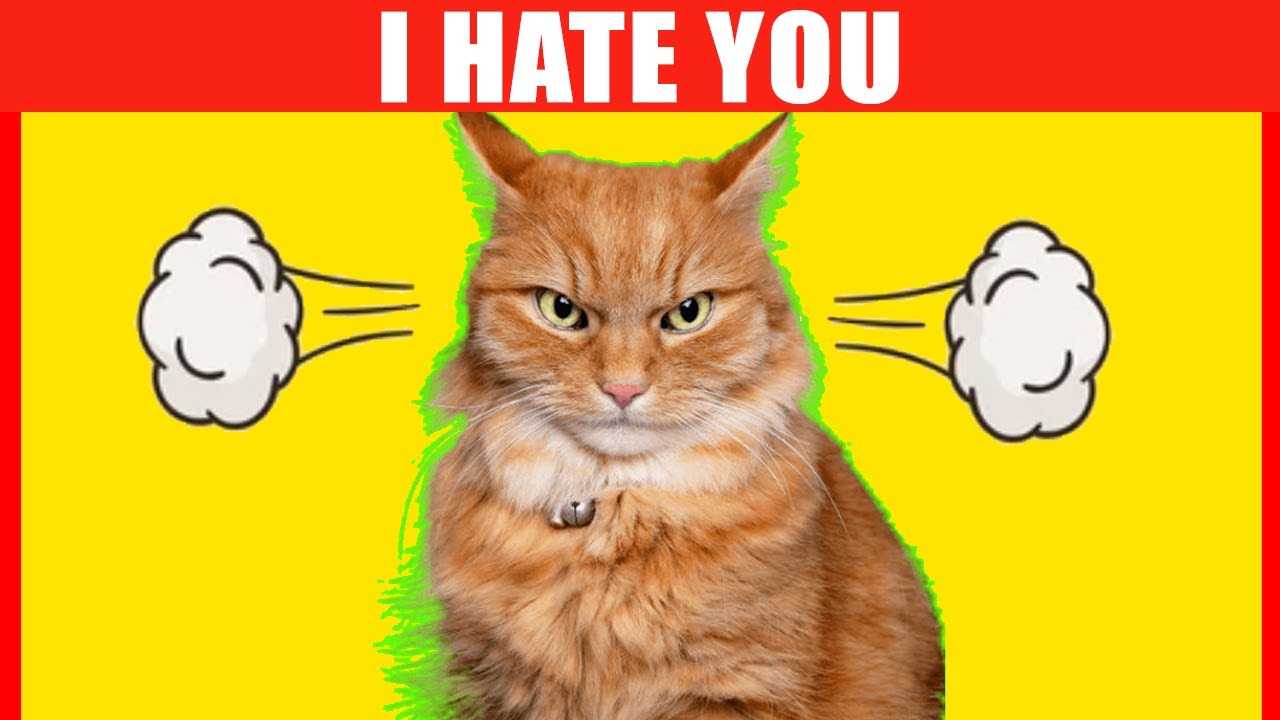19 Warning Signs That Your Cat Is Begging For Help
In this video, we ll talk about 19 signs that your cat is crying out for help. Increased hiding Cats like to hide, but if your cat hides more often than usual, it could be a sign that they are in pain. Pets who suddenly start to hide could be stressed out or have an invisible illness wreaking havoc in their body. Not Using Their Litter Box If your cat has always used their litter box, and then suddenly starts doing its business in random areas of the house, they may be trying to tell you they don’t feel well. Health concerns that can cause litter box issues include urinary tract infection, kidney disease, and bladder stones. Changes in maintenance habits Cats are great at maintaining their appearance. When your cat starts to neglect their grooming routine, it may be time for a checkup. Your pet could be suffering from a range of ailments that cause fatigue, which would explain their disheveled look or the undoing of their grooming habits. A “disheveled” cat might be missing patches of fur, have debris stuck in their fur, have dirty ears, or have feces stuck to their rear end. Discolored Gums Your cat’s gums should be a deep pink color, and when you press them with your finger, they should return to pink color within a few seconds after lifting your finger. Pale gums that lack color are usually a sign of blood loss or poor circulation. This is because gums get their bubble-gum pink color from blood flowing beneath the surface. Bluish gums can indicate a life-threatening lack of oxygen. Bright red gums could be a sign of toxicity or overheating, but it can indicate a dental issue if the redness is right above the teeth. Stinky breath Unusually stinky breath in your cat can be a sign of gum disease or tooth decay. Drinking excessive amounts of water If you notice that your cat seems to be drinking more water than usual, it could be a sign that something is wrong. A cat who drinks a lot of water could be suffering from endocrine problems such as diabetes or hyperthyroid disease. A Sudden Increase in Appetite An increase in appetite can indicate your cat has underlying health problems and needs to be examined by a vet. Increased appetite can be due to diabetes, hyperthyroidism, or nutrient malabsorption issues such as intestinal cancer or inflammatory bowel disease. Crying or Yowling Crying or Yowling can indicate that your cat is experiencing some kind of pain. If you start to pet your cat and they whine or keep distance from you, you know there is something wrong. Vomiting Some people believe it s ok for a cat to vomit once a week, but it s not. While vomiting a few times a year or an occasional hairball is normal, anything more than this indicates your pet could be suffering from some kind of sickness. Increased Aggression Sudden changes in a cat’s behavior is a sign of sickness. A cat in pain may become aggressive, especially if you unwittingly touch a sore place. Losing Hair and Crusty Skin If you notice excessive loss of hair and crusty or scaly patches on your cat’s skin that may be red, a vet visit is necessary. Unexpected Weight Gain or Weight Loss If your feline is suddenly losing or gaining weight for no obvious reason, it s important to visit a vet. Lack of appetite if your cat has suddenly stopped showing interest in their favorite treat, take a note. A loss of appetite could be a sign of a serious underlying infection, kidney failure, fever or even cancer. Mobility Problems Stiffness or limping can be a sign that something is wrong, especially in a young cat. In older cats, it could indicate arthritis. Change in Sleeping Patterns If your cat suddenly begins to sleep all day when it used to be active, they may be trying to tell you they don’t feel well. The opposite can also be true. If your pet is suddenly up all night, vocalizing, or is overactive during the daytime, it could indicate an underlying issue. Coughing Coughing can be caused by allergies, hairballs, and asthma to name a few of the more minor inflictions. It can, however, also be caused by more serious conditions like heart disease, lung disease, and other contagious diseases. Runny eyes and nose Sneezing, discharge from the nose or eyes, fever, coughing and, sniffles can all be signs of a feline upper respiratory tract disease. This is, essentially, the equivalent of the common human cold. Bloody urine, stool or vomit Blood is never a good thing. In your cat’s urine, it can mean a urinary tract disorder. If you notice blood in your cat’s stool, it can be indicative of a number of illnesses. #1. Trying to Use Bathroom A cat who tries to go potty but isn’t producing anything may have a blockage somewhere, which could be life-threatening if it’s left untreated.




















